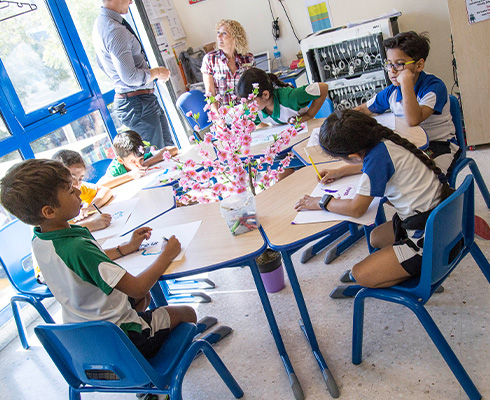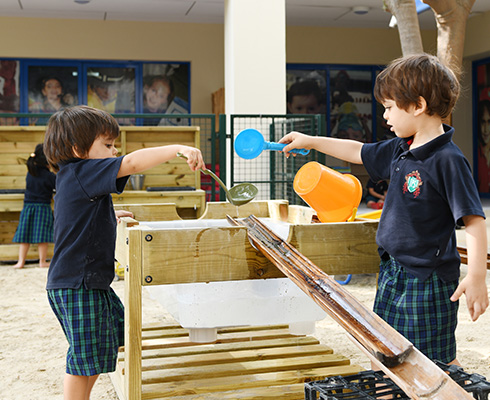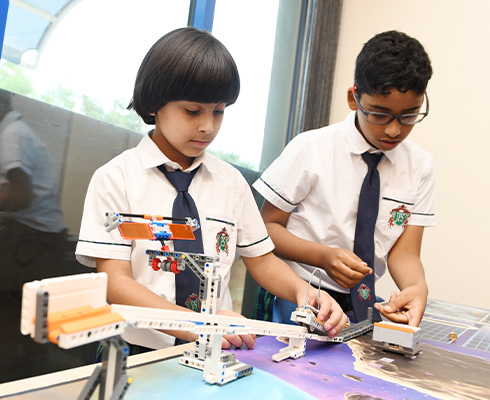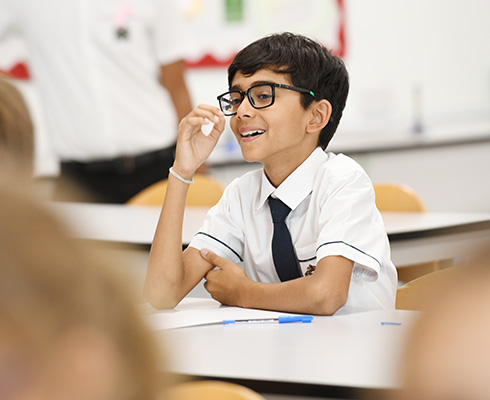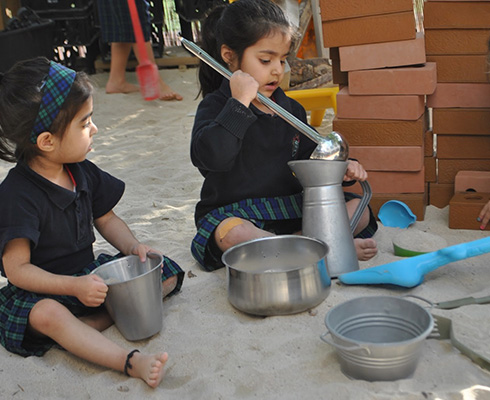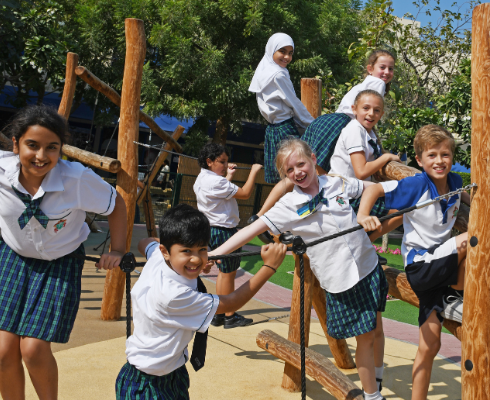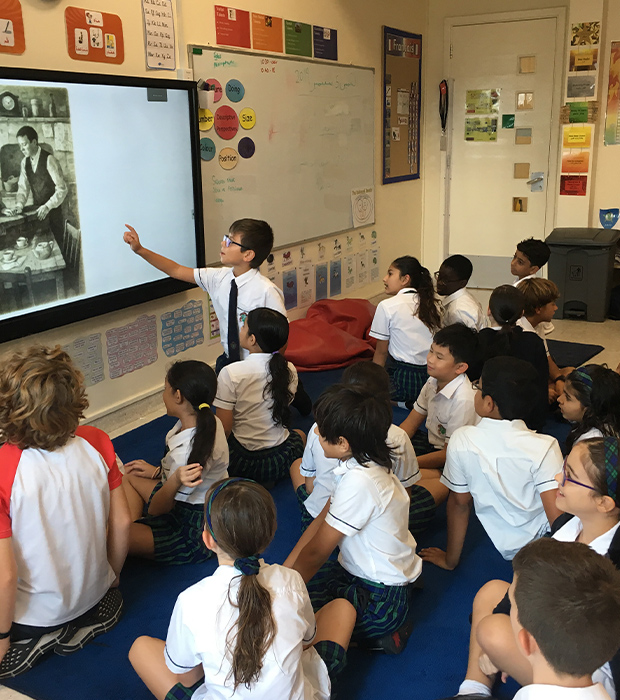
Conceptual Learning
Conceptual Learning at Jumeirah Primary School is a bespoke programme of study combining knowledge and skills from The National Curriculum in England, dovetailed with timeless, global and abstract concepts. Our aim is to support our children in connecting and transferring their learning experiences in school to real-life contexts, thus supporting them in becoming responsible citizens in an ever-changing global community.
At Jumeirah Primary School, Conceptual Learning lessons are planned with the principal aim of developing students' knowledge, skills and conceptual understanding in order to ensure that they can then transfer these skills into all curriculum subjects and real-life contexts.
Conceptual Learning at JPS is enquiry-driven, idea-centred and goes beyond the memorisation of facts and skills. The critical third dimension of concepts and deeper conceptual understandings, which transfer through time, across cultures and across situations, make learning relevant and engaging for our children. Conceptual Learners at JPS become critical thinkers who are able to offer reasons to support their opinions, using relevant evidence, criteria and defining standards through investigating relevant issues and themes. As a result, children retain knowledge, skills and concepts through the personal and transferable connections they make with their learning experiences.
To ensure a broad and balanced curriculum and learning experiences, teachers agree what two macro concepts will be the focus for each term’s learning. From this, the over-arching learning or generalisations are formulated. Following this, all lesson content, themes, core texts and objectives (taken from the National Curriculum in England) are selected to illustrate the target generalisation.
At the start of each theme, learners are exposed to the abstract ideas of the macro concepts to be explored through an engaging ‘Sparkly Start’.
Conceptual Learning lessons consist of a variety of whole-class, individual and collaborative group learning experiences in which children are able to develop and apply their critical thinking skills in inquiry-based approaches. Teachers use a range of techniques to guide children towards the intended learning targets. Children are provided with specific, relevant examples that illustrate the knowledge, skills and conceptual understanding to be gleaned and are enabled to explore these through the enquiry process in which they discover the generalisation or transferable idea that is being represented. Teachers use a range of factual, conceptual and provocative questions to guide students' thinking towards the target generalisation.
Children are able to develop their ability to explain, seek out patterns and see interconnections of knowledge and understanding, providing them with opportunities to learn about concepts in other areas of the curriculum in order to develop depth of understanding. Where possible, purposeful conceptual links are made with core subjects, especially English and Science.
Throughout each lesson, learners are formatively assessed. At the end of each theme, children demonstrate their understanding of the macro concepts and generalisations through carefully-designed performance tasks. Learners select their own examples of presentation modes (these can be linked to CAT4 strengths/targets) and teachers assess which level of understanding, related to the target generalisation, the learner has achieved. At the end of each theme, children are given the opportunity to showcase their understanding of the generalisation through the completion of a POP ('Proof of Progress') task. Children are also given the opportunity to showcase the skills they have learnt in an end of theme ‘Super Showcase’.



